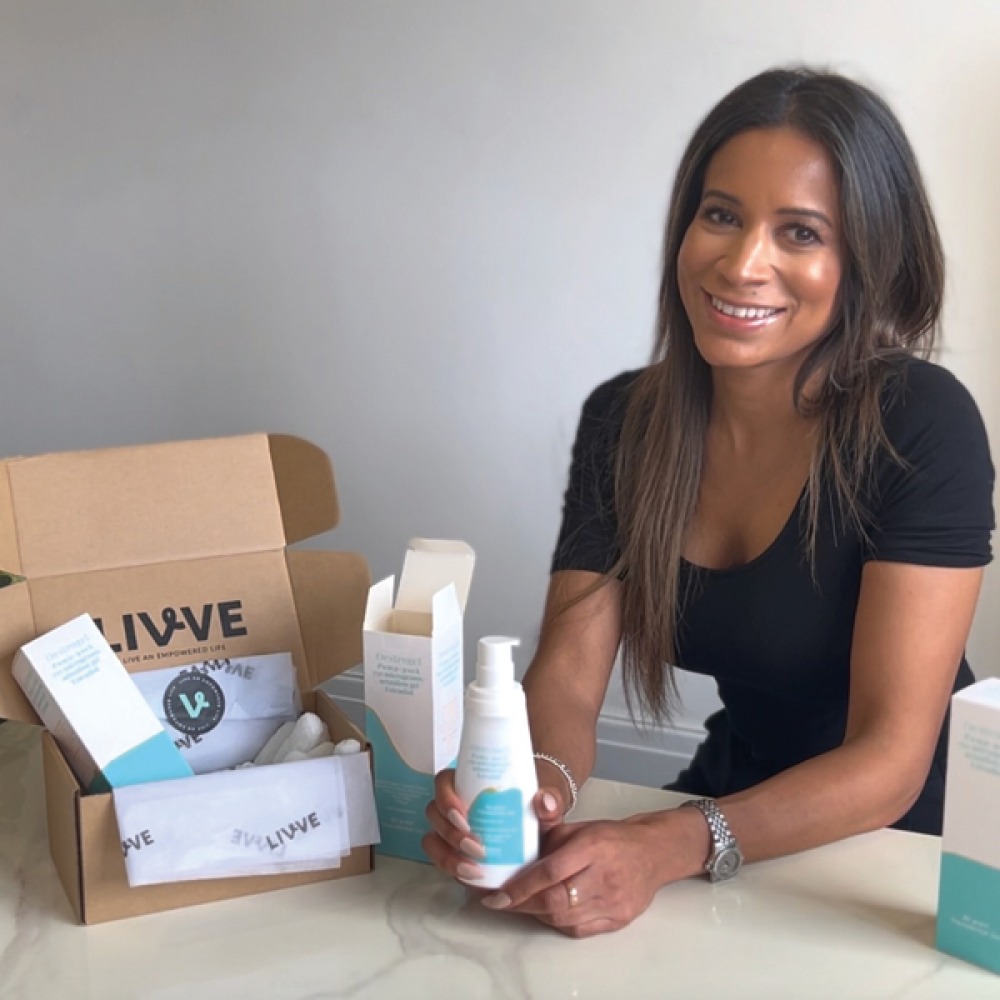Meet Melissa Sookia, the Pharmacist-Turned-Entrepreneur Who is Making Menopause Treatments More Accessible Than Ever

Living North meet Melissa Sookia, founder of LIVVE - the groundbreaking online pharmacy providing specialised treatment for symptoms of the menopause
Melissa had been a pharmacist for more than 20 years when she set up LIVVE. She had noticed a frustrating pattern in the patients she spoke to. ‘[They] were spending a lot of money on private menopause clinics,’ she tells me, ‘or they were going to GPs, and they weren’t getting the answers they were wanting.’ Instead of their symptoms being recognised as part of menopause and perimenopause, ‘they were either being diagnosed with anxiety or depression’.
She recognised that there was a huge lack of accessible, but specialised, treatments for women experiencing the symptoms of menopause. In response, she undertook training with the Marion Gluck Training Academy, who specialise in hormone replacement therapies (HRT), and thus became a member of the British Menopause Society. With these qualifications under her belt, she set up LIVVE.
Read More: Discover the Women Behind North Shields’ Fishing Heritage

The company offers online consultations to discuss and identify symptoms of menopause without the lengthy waiting times that can be associated with GP services, or the usual expense of the private sector. Indeed, their whole service is designed to make treatments accessible from a perspective of both price and convenience. ‘We charge £75 for a consultation,’ Melissa says. ‘I thought if it was online, they could have the services from home or from their workplace.
‘I also wanted a pharmacy attached to it,’ she explains, ‘so they wouldn’t then have to go somewhere else to get their treatments [or] spend time waiting around for the pharmacy [because] there are stock shortages.’
More importantly, LIVVE do everything they can to make sure that the treatments they prescribe work, and continue to work, throughout the menopausal period. ‘Part of LIVVE’s appeal is that they can provide that end-to-end care for patients,’ explains Melissa. ‘We make sure we’re seeing them regularly.’
Besides treating the women that approach them, Melissa is also committed to creating awareness about the symptoms of menopause, how it can affect women’s lives, and how workplaces can support their employees. ‘It’s just really misunderstood and it really affects relationships, it affects workplaces. So many women are quitting their jobs because of the menopause. Relationships have broken down because of it.’
A lack of awareness about the range of ways that menopause can manifest (Melissa says there are 48 known symptoms) means that, despite how debilitating the symptoms can be, they often go unrecognised. Another factor behind this is age. ‘A lot of the women that we see are between 40 to 45,’ she adds, ‘which is a really young age group, and a lot of these women are still working – they’re in really skilled jobs.’ In other words, because menopause is thought of as an older woman’s problem, younger women are left confused about why they find themselves struggling with work at a time that might otherwise be the peak of their professional lives.
Read More: Meet the Durham-Based Handywoman Flipping the Status Quo around Women in Trade
There are, of course, many reasons why women might feel hesitant to seek treatment, and Melissa is aware that talking about menopause can bring up very complicated feelings for their patients. ‘A lot of women and a lot of cultures are ashamed of it, which isn’t fair,’ she says. ‘A lot of women don’t like to accept that they’re going through it, because it could be the end of being able to get pregnant, fertility, and they don’t like that,’ she continues. ‘A lot of women attach it to age, and it makes them feel older.’
It’s not surprising that initial consultations are frequently very emotional. ‘I’d say 50 percent of women we speak to are in tears on the phone when we speak to them,’ Melissa says. Consequently, when they are able to help, the sense of reward is huge.
‘There are so many benefits to treatments,’ she continues. ‘Once you start treating women, they genuinely feel like they are themselves again, they can work better, their relationships improve.’ With so much to gain from making menopause and its treatments part of the conversation, Melissa’s ambition for LIVVE and the work that she and their other pharmacists do is clear: ‘we just want to normalise it’.
Favourite place to walk in Yorkshire?
Harewood.
An item you couldn’t live without?
I genuinely couldn’t live without my HRT.
Advice you’d give your younger self?
Don’t care so much about what other people think.
Favourite place to eat in Yorkshire?
Can I just say my mum’s house? I love my mum’s cooking and she’s just the best.
Visit livve.uk to find out more.







